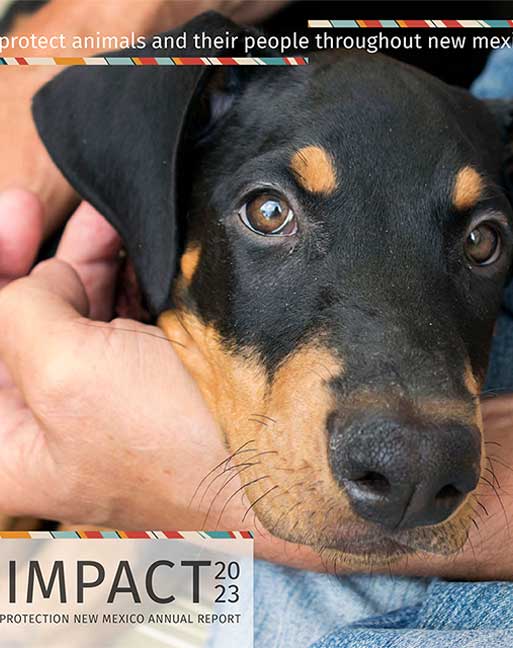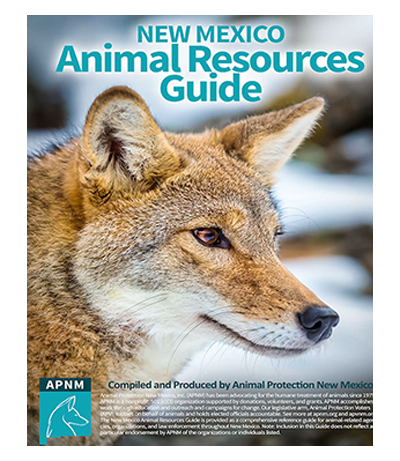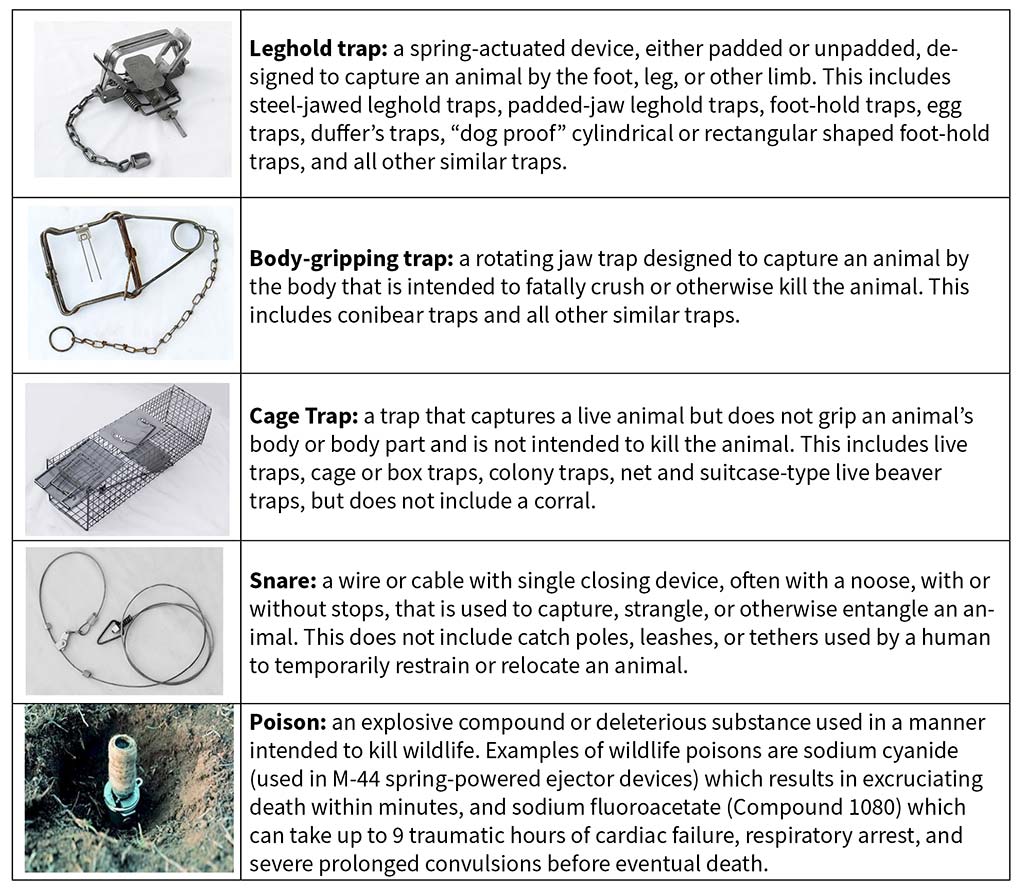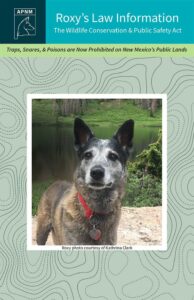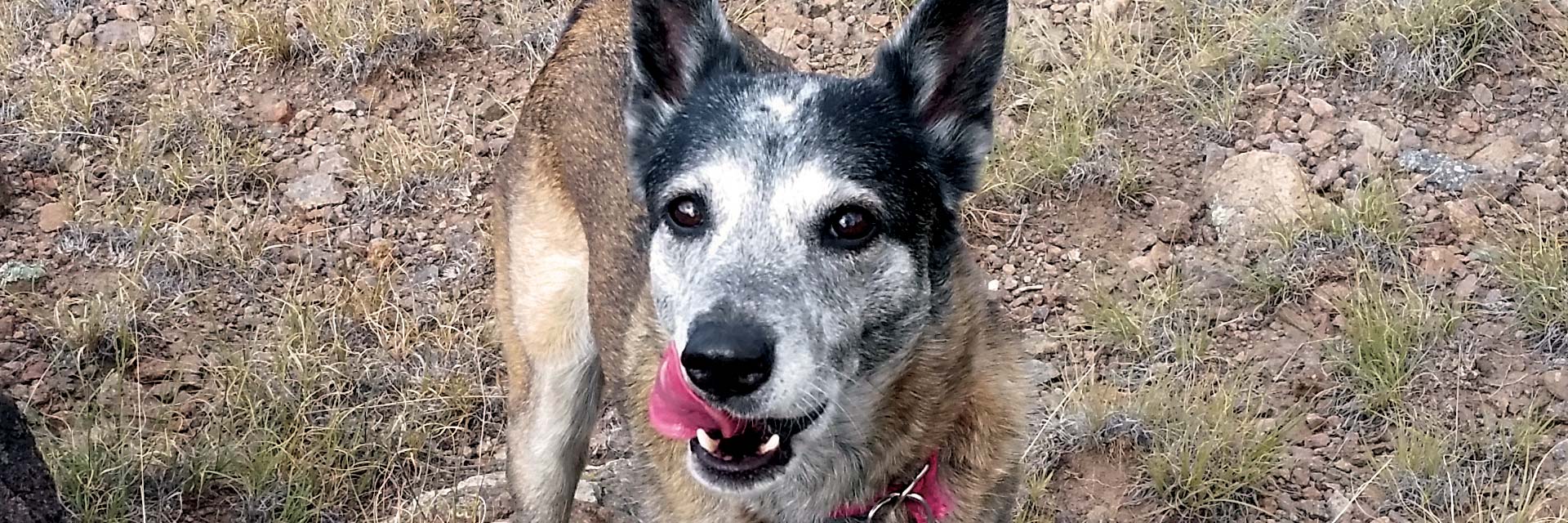
How Roxy’s Law Changed the Landscape for Animals
Traps, snares, and poisons injure and kill countless animals, both wild and domestic. One such victim was a beloved senior dog named Roxy. While exploring the Santa Cruz Lake recreation area with her human family over Thanksgiving weekend in 2018, she was caught in a neck snare trap. Roxy’s family was unable to loosen the snare before Roxy strangled to death in the trap.
Roxy’s story helped open the eyes of caring New Mexicans to the cruel and dangerous nature of traps and poisons, and the hazard they pose to everyone who enjoys our public lands. In 2021, this public outcry—plus almost two decades of stories of similar tragedies—helped to pass the Wildlife Conservation and Public Safety Act (§ 17-11-1 N.M.S.A. 1978), nicknamed “Roxy’s Law” in her honor.
While stories of companion animals falling victim to traps demonstrate their indiscriminate nature, the intended targets of traps and poisons are wildlife–most often for their fur or because they are perceived as a nuisance. Thousands of wild animals such as bobcats, foxes, beavers, and coyotes have been killed every year in New Mexico. And those are just the ones legally reported. An untold number more have been killed through illegal and unreported trapping.
Roxy’s Law prohibits the use of traps, snares, or poisons for the purposes of capturing, injuring, or killing an animal on public lands, unless the use meets one of the law’s exceptions. This law went into effect April 1, 2022.
The bad news: some people may choose to violate the law.
The good news: violators will now be easier to prosecute.
Lands where Roxy’s Law applies:
- Federal lands: all lands administered by the National Park Service, United States Fish & Wildlife Service, United States Forest Service, Federal Bureau of Land Management, United States Department of Defense.
- State lands: all lands owned, leased, or held in trust by the state of New Mexico, including lands administered by the State Park Service, State Land Office, counties, and municipalities.
Lands where Roxy’s Law does not apply:
- The interior of physical structures.
- Land belonging to or held in trust for an Indigenous nation, tribe, or pueblo.
- Privately owned land.
Exceptions include:
- Lawful hunting and fishing tools such as firearms and archery, fishing, and falconry equipment.
- The taking or control of birds, fish, or rodents not defined as furbearers.
- Government entities acting to prevent or mitigate actual threats to human health and safety, or to conduct ecosystem management.
- Trapping conducted by the New Mexico Department of Game and Fish to reduce or prevent damage caused by wildlife to property or waterways, including to harvested and stored crops and farmed animals. Such traps and snares must be non-lethal and accompanied by visible signs at the location of each device to notify the public.
- Use of cage traps to recover or to provide veterinary care or husbandry to a domestic or feral animal as authorized by law.
- Use of cage traps as authorized by the New Mexico Department of Game and Fish rules to abate damages caused by any animal to property, crops, or farmed animals. Once the damage has been abated, use of the cage trap must stop.
- Scientific research that is not conducted for commercial gain from the sale of animal parts, and which is authorized by the New Mexico Department of Game and Fish.
- Enrolled members of a federally-recognized Indigenous nation, tribe, or pueblo when trapping is conducted solely for religious or ceremonial purposes.
BE ON THE LOOKOUT FOR TRAPS, SNARES, AND POISONS!
ALL of these common types of traps, snares, and poisons ARE ILLEGAL on public lands unless they fit under an exception. Remember that out in the field, these traps will be hidden under leaves, sticks, sand or other camouflage in order to make them difficult to spot.
Photo of Roxy by Kathrina Clark
WHAT TO DO IF YOU FIND A TRAP, SNARE, OR POISON:
- Take note of the location and, if possible, take photos. But do not remove or destroy the device without authorization. It is possible a device may be allowed under a Roxy’s Law exception and tampering with the device would then be illegal.
- Immediately report it to the New Mexico Department of Game and Fish by calling Operation Game Thief at 1-800-432-4263! They are the appropriate agency to investigate an incident, determine whether it’s illegal, file criminal charges, and prosecute violations.
- Call our Animal Cruelty Helpline at 877-5HUMANE (877-548-6263). We will document the incident and work with you to contact or follow-up with the appropriate law enforcement agency.


